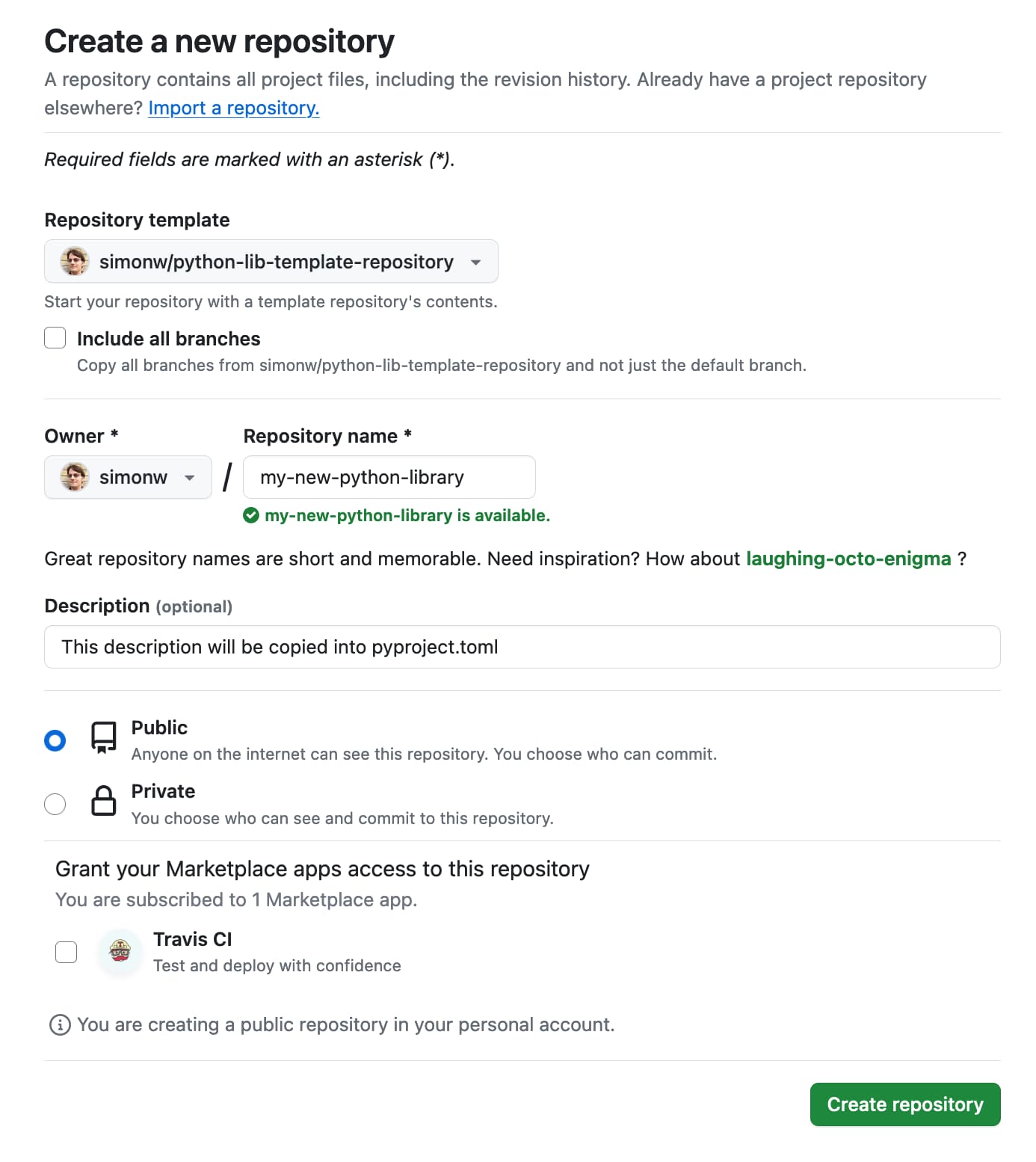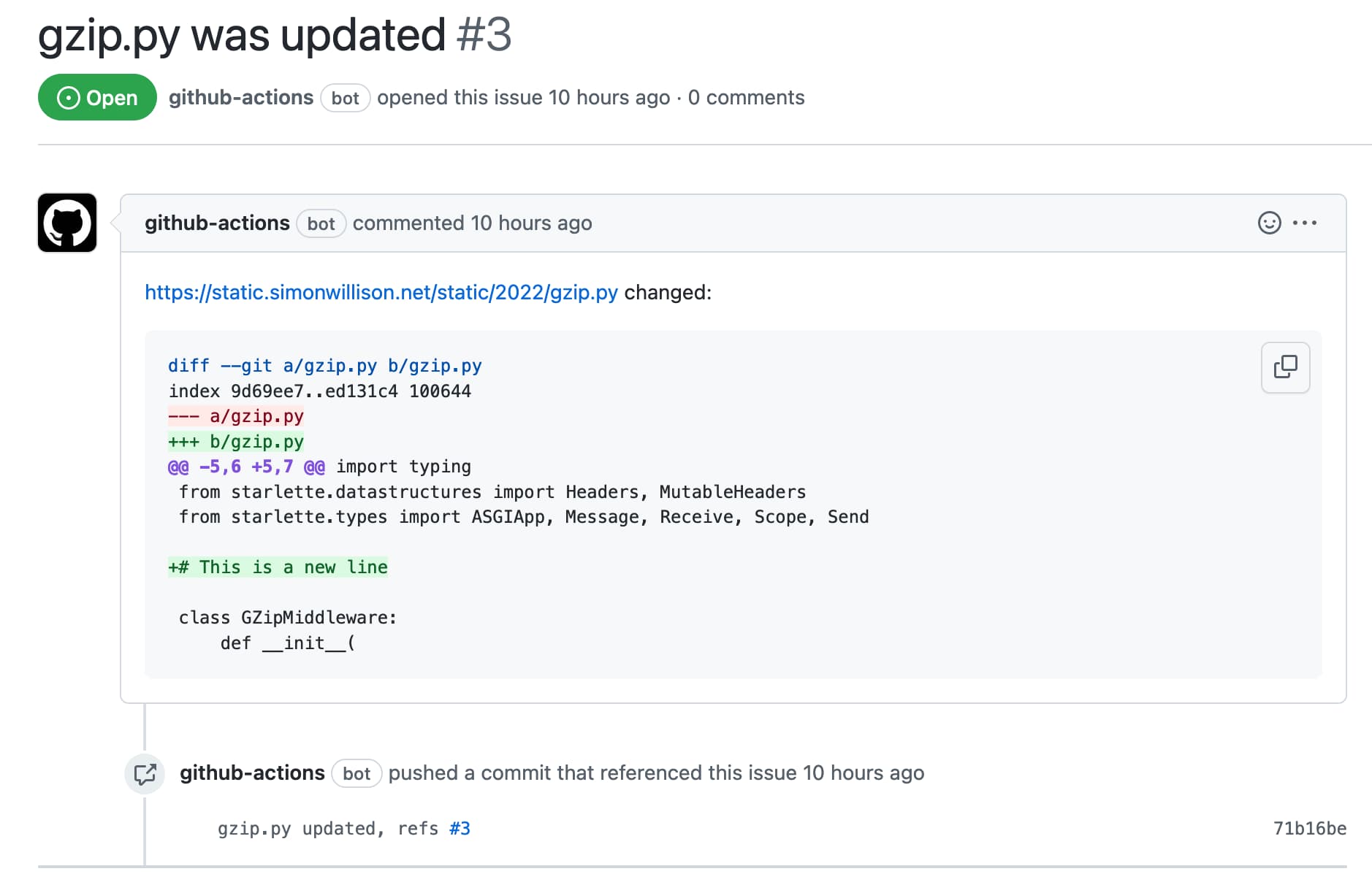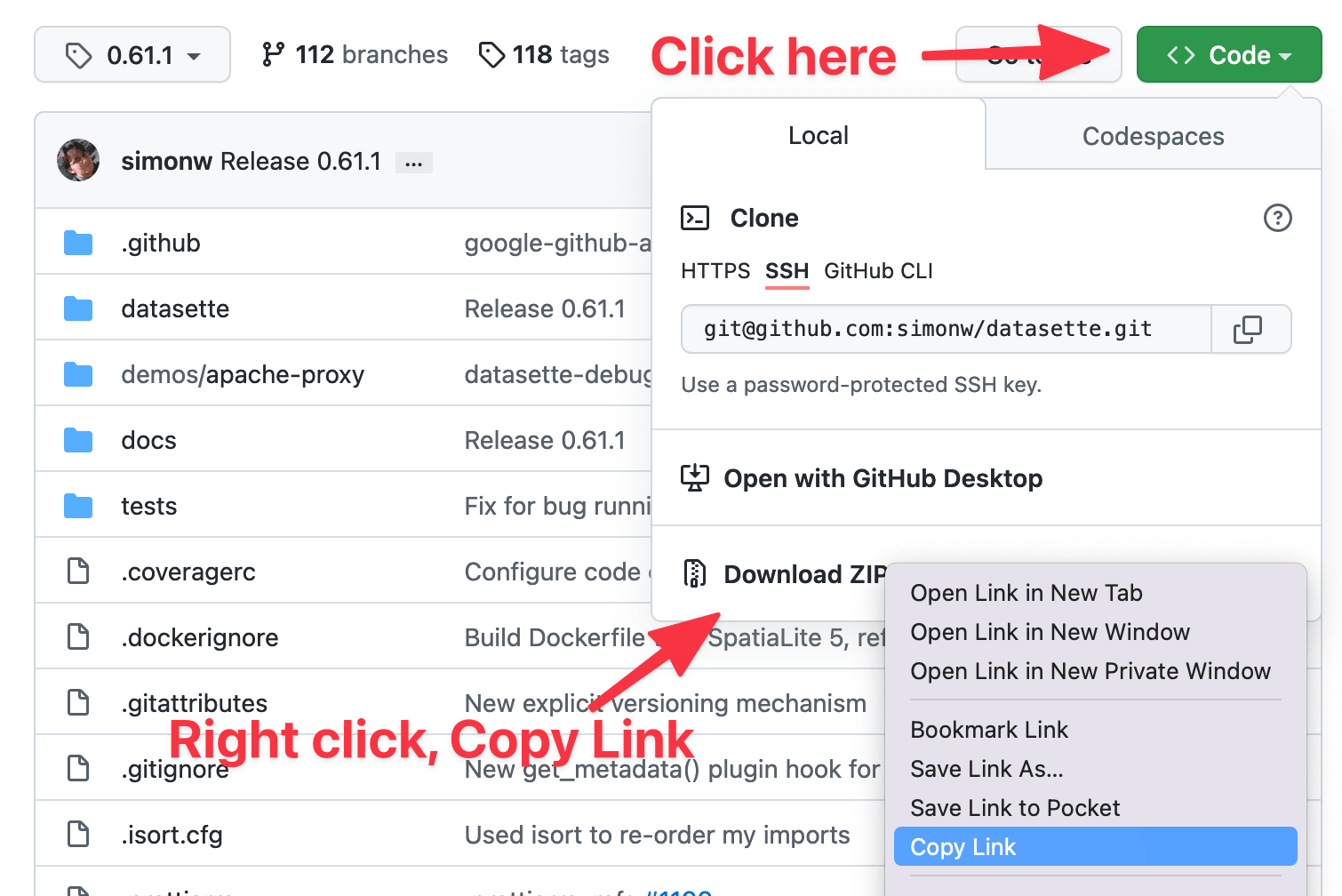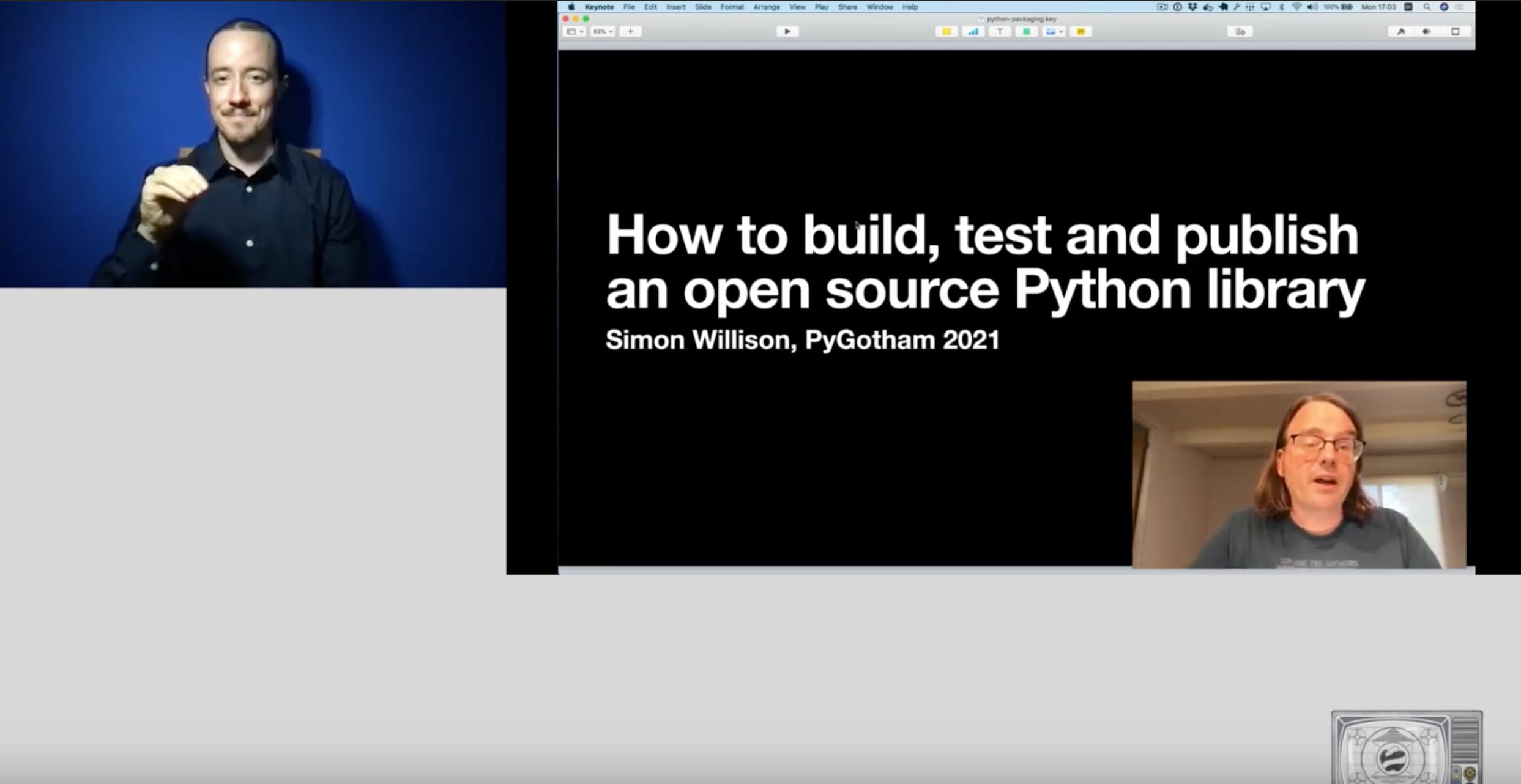Posts tagged python, github
Filters: python × github × Sorted by date
Security means securing people where they are (via) William Woodruff is an Engineering Director at Trail of Bits who worked on the recent PyPI digital attestations project.
That feature is based around open standards but launched with an implementation against GitHub, which resulted in push back (and even some conspiracy theories) that PyPI were deliberately favoring GitHub over other platforms.
William argues here for pragmatism over ideology:
Being serious about security at scale means meeting users where they are. In practice, this means deciding how to divide a limited pool of engineering resources such that the largest demographic of users benefits from a security initiative. This results in a fundamental bias towards institutional and pre-existing services, since the average user belongs to these institutional services and does not personally particularly care about security. Participants in open source can and should work to counteract this institutional bias, but doing so as a matter of ideological purity undermines our shared security interests.
PyPI now supports digital attestations (via) Dustin Ingram:
PyPI package maintainers can now publish signed digital attestations when publishing, in order to further increase trust in the supply-chain security of their projects. Additionally, a new API is available for consumers and installers to verify published attestations.
This has been in the works for a while, and is another component of PyPI's approach to supply chain security for Python packaging - see PEP 740 – Index support for digital attestations for all of the underlying details.
A key problem this solves is cryptographically linking packages published on PyPI to the exact source code that was used to build those packages. In the absence of this feature there are no guarantees that the .tar.gz or .whl file you download from PyPI hasn't been tampered with (to add malware, for example) in a way that's not visible in the published source code.
These new attestations provide a mechanism for proving that a known, trustworthy build system was used to generate and publish the package, starting with its source code on GitHub.
The good news is that if you're using the PyPI Trusted Publishers mechanism in GitHub Actions to publish packages, you're already using this new system. I wrote about that system in January: Publish Python packages to PyPI with a python-lib cookiecutter template and GitHub Actions - and hundreds of my own PyPI packages are already using that system, thanks to my various cookiecutter templates.
Trail of Bits helped build this feature, and provide extra background about it on their own blog in Attestations: A new generation of signatures on PyPI:
As of October 29, attestations are the default for anyone using Trusted Publishing via the PyPA publishing action for GitHub. That means roughly 20,000 packages can now attest to their provenance by default, with no changes needed.
They also built Are we PEP 740 yet? (key implementation here) to track the rollout of attestations across the 360 most downloaded packages from PyPI. It works by hitting URLs such as https://pypi.org/simple/pydantic/ with a Accept: application/vnd.pypi.simple.v1+json header - here's the JSON that returns.
I published an alpha package using Trusted Publishers last night and the files for that release are showing the new provenance information already:
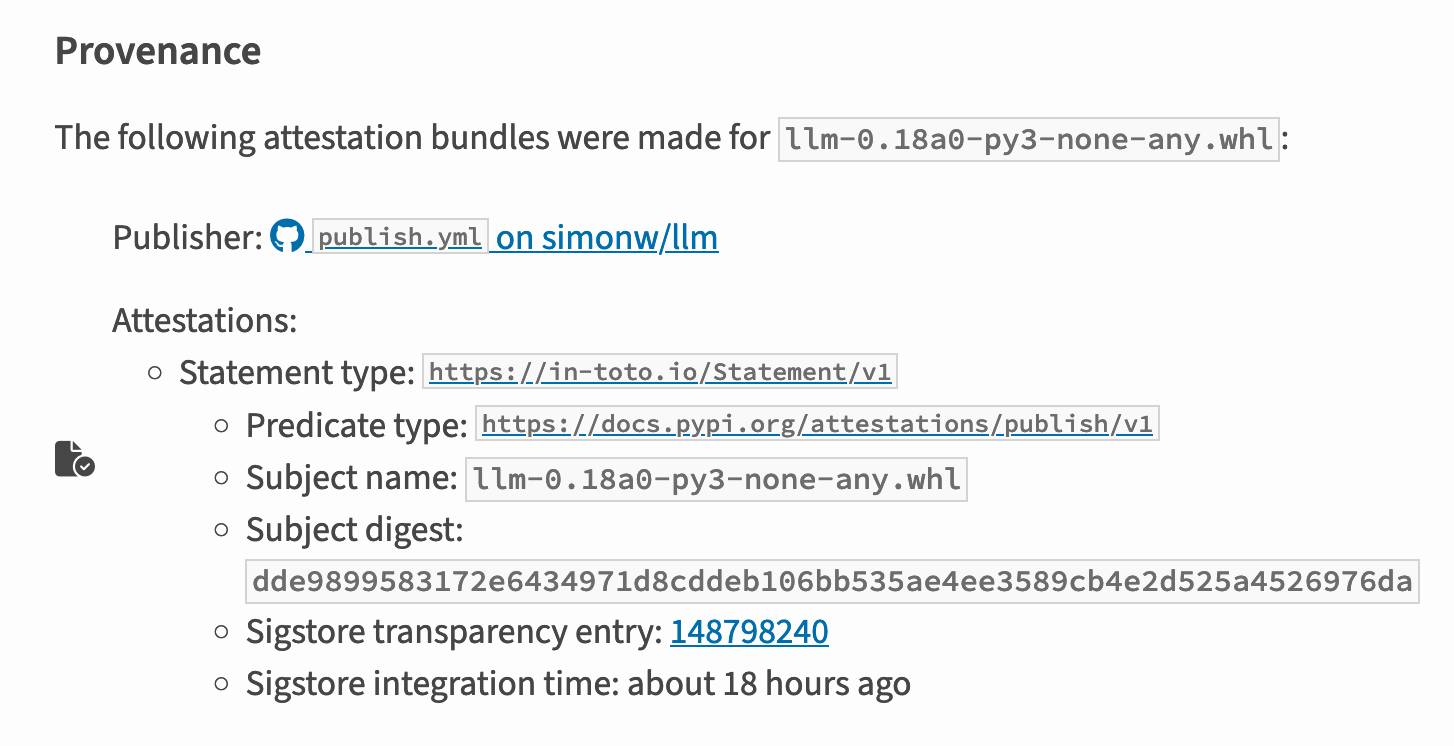
Which links to this Sigstore log entry with more details, including the Git hash that was used to build the package:
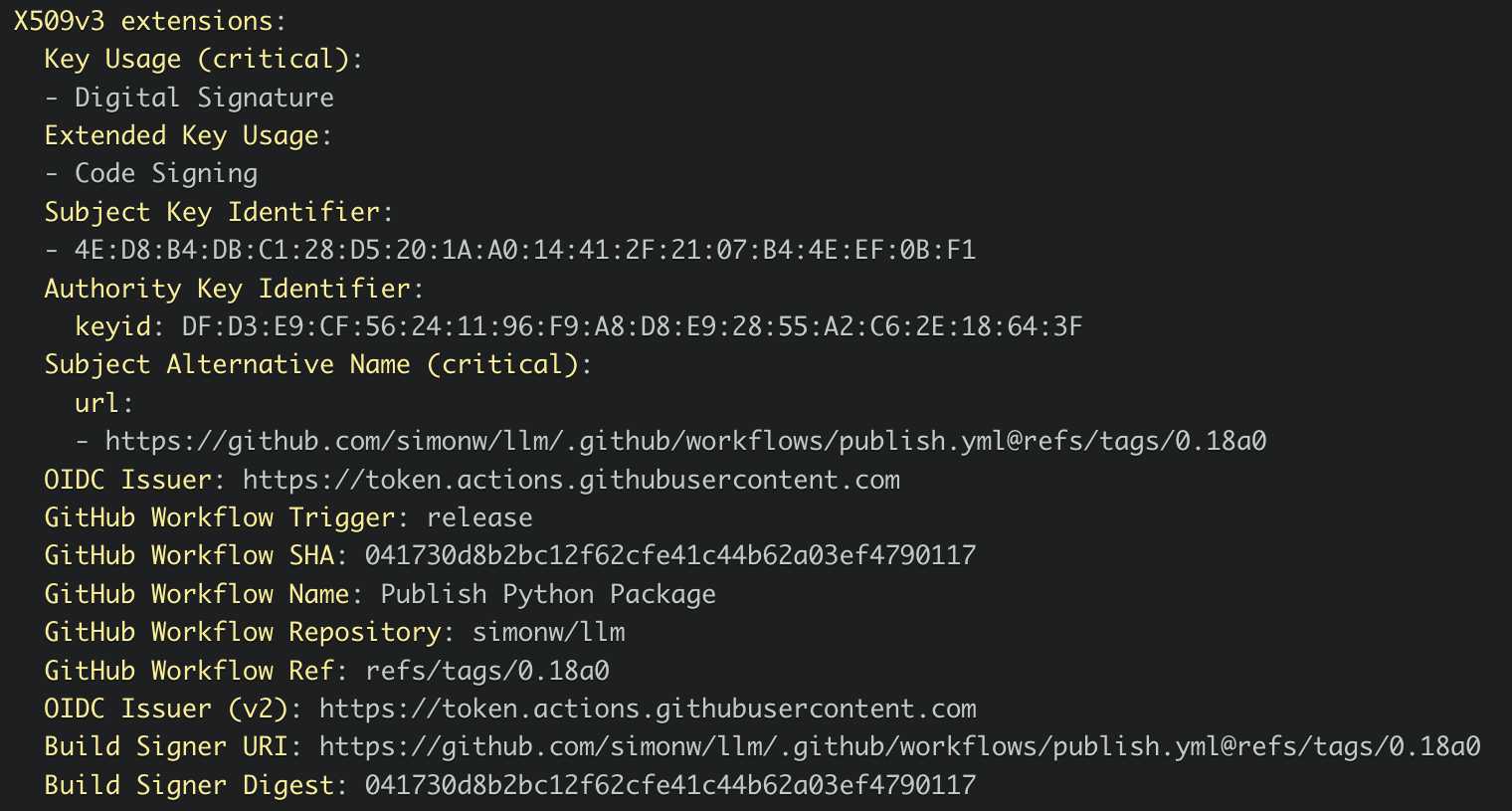
Sigstore is a transparency log maintained by Open Source Security Foundation (OpenSSF), a sub-project of the Linux Foundation.
Publish Python packages to PyPI with a python-lib cookiecutter template and GitHub Actions
I use cookiecutter to start almost all of my Python projects. It helps me quickly generate a skeleton of a project with my preferred directory structure and configured tools.
[... 686 words]codespaces-jupyter (via) This is really neat. Click “Use this template” -> “Open in a codespace” and you get a full in-browser VS Code interface where you can open existing notebook files (or create new ones) and start playing with them straight away.
Automatically opening issues when tracked file content changes
I figured out a GitHub Actions pattern to keep track of a file published somewhere on the internet and automatically open a new repository issue any time the contents of that file changes.
[... 1,211 words]Useful tricks with pip install URL and GitHub
The pip install command can accept a URL to a zip file or tarball. GitHub provides URLs that can create a zip file of any branch, tag or commit in any repository. Combining these is a really useful trick for maintaining Python packages.
Introducing stack graphs (via) GitHub launched “precise code navigation” for Python today—the first language to get support for this feature. Click on any Python symbol in GitHub’s code browsing views and a box will show you exactly where that symbol was defined—all based on static analysis by a custom parser written in Rust as opposed to executing any Python code directly. The underlying computer science uses a technique called stack graphs, based on scope graphs research from Eelco Visser’s research group at TU Delft.
How to build, test and publish an open source Python library
At PyGotham this year I presented a ten minute workshop on how to package up a new open source Python library and publish it to the Python Package Index. Here is the video and accompanying notes, which should make sense even without watching the talk.
[... 2,055 words]Pull request #4120 · python/cpython. I just had my first ever change merged into Python! It was a one sentence documentation improvement (on how to cancel SQLite operations) but it was fascinating seeing how Python’s GitHub flow is set up—clever use of labels, plus a bot that automatically checks that you have signed a copy of their CLA.
Scriptlets—Quick web scripts (via) From the prolific Jeff Lindsay, a pastebin-style tool for short server-side scripts written in Python, JavaScript or PHP that executes them within a Google App Engine powered sandbox. The Java code that implements the service is available on GitHub.
optfunc. Command line parsing libraries in Python such as optparse frustrate me because I can never remember how to use them without consulting the manual. optfunc is a new experimental interface to optparse which works by introspecting a function definition (including its arguments and their default values) and using that to construct a command line argument parser. Feedback and suggestions welcome!
geocoders. A fifteen minute project extracted from something else I’m working on—an ultra simple Python API for geocoding a single string against Google, Yahoo! Placemaker, GeoNames and (thanks to Jacob) Yahoo! Geo’s web services.
djng—a Django powered microframework
djng is nearly two weeks old now, so it’s about time I wrote a bit about the project.
[... 1,501 words]disturbyte’s zenqueue. Simple, tiny and fast Python message queue server built on top of coroutines and Eventlet, using JSON over TCP as the message format. I’m impressed with how potentially useful this looks considering the small amount of code. The author benchmarks it at 28 thousand messages/second.
djangopeople.net on GitHub. I’ve released the source code for Django People, the geographical community site developed last year by myself and Natalie Downe (it hasn’t otherwise been touched since April last year, so it needs porting to Django 1.1). If you want a new feature on the site, implement it and I’ll see about merging it in.
Rate limiting with memcached
On Monday, several high profile “celebrity” Twitter accounts started spouting nonsense, the victims of stolen passwords. Wired has the full story—someone ran a dictionary attack against a Twitter staff member, discovered their password and used Twitter’s admin tools to reset the passwords on the accounts they wanted to steal.
[... 910 words]fireeagle_api.py. Steve Marshall’s Fire Eagle python binding on GitHub.
